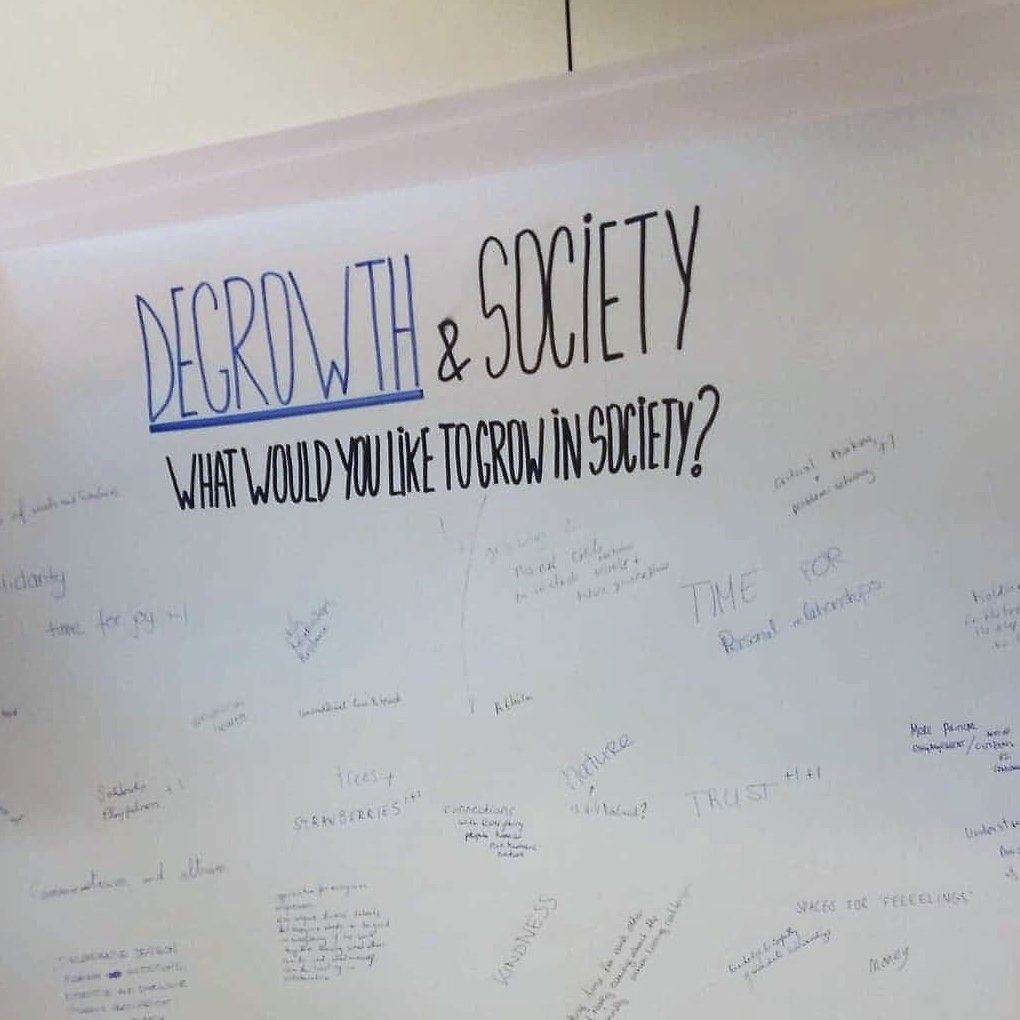During the first Utrecht Degrowth Symposium we had a 1 hour long “interactive” break, where next to socializing and getting refreshments, people were invited to share their thoughts on what constitutes a good life.
“What would you like to grow in society? What would you like to grow in your personal life” - these were the questions we displayed on posters in the break area. We wanted to initiate this discussion, because degrowth supports scaling down consumerism and resource exploitation, but it also supports scaling up other things that matter the most to us. So…what matters the most to you?
Degrowth and Personal Life
Several people mentioned that they would like to grow their acceptance, imagination, attention, tolerance, spirituality and consciousness. Many answers seem to be linked to spending time doing things that people already enjoy, e.g. hobbies, family time, becoming less busy, keeping family-career balance… Some people mentioned autonomy, e.g. growing a strong character, independence from hierarchies of a state-system or too fast-paced decision-making. Another theme is interdependence: people are looking for community-living, having a positive impact on others, and connecting with voices that are silenced today, e.g. those from indigenous communities.
Degrowth and Society
Some of these themes also came up when thinking about what to grow in the society. Quite a few people mentioned collaboration, e.g. connection between people, altruism, communitarianism, solidarity, active citizenship and political engagement. Another big theme is nature and the natural world, e.g. trees and strawberries, appreciation for nature, knowledge and empathy of immediate surroundings. Some answers focused on positive emotional connections, e.g. trust, compassion, kindness, love, relationships, playfulness, emotional health, passion for collectiveness. A few people mentioned the need for space for feelings, and for making a transition “from the elephant to the snail”. Some mentioned introspective qualities such as inner peace and reflection time. Also a few people mentioned money and wealth.
We deliberately chose to keep these questions as open as possible to allow for spontaneity and free thinking. When comparing the two posters, it seems that many things that people want to grow in their own life are very similar to the things that they would like to see growing in the society as a whole.
For us, this type of exercise is a way to collectively discuss what is important, essential and desirable in society. Such collective exercises create space for values to emerge explicitly, and can inspire policies based on other types of values than the ones which are generally assumed (e.g. rationality, imperative of material wealth accumulation and individualism).
In the following video, anthropologist Jason Hickel connects the idea of economic growth with our wellbeing, and argues that sustainable economy can be build only on explicit values of living in harmony with ourselves and the planet on which we depend.

